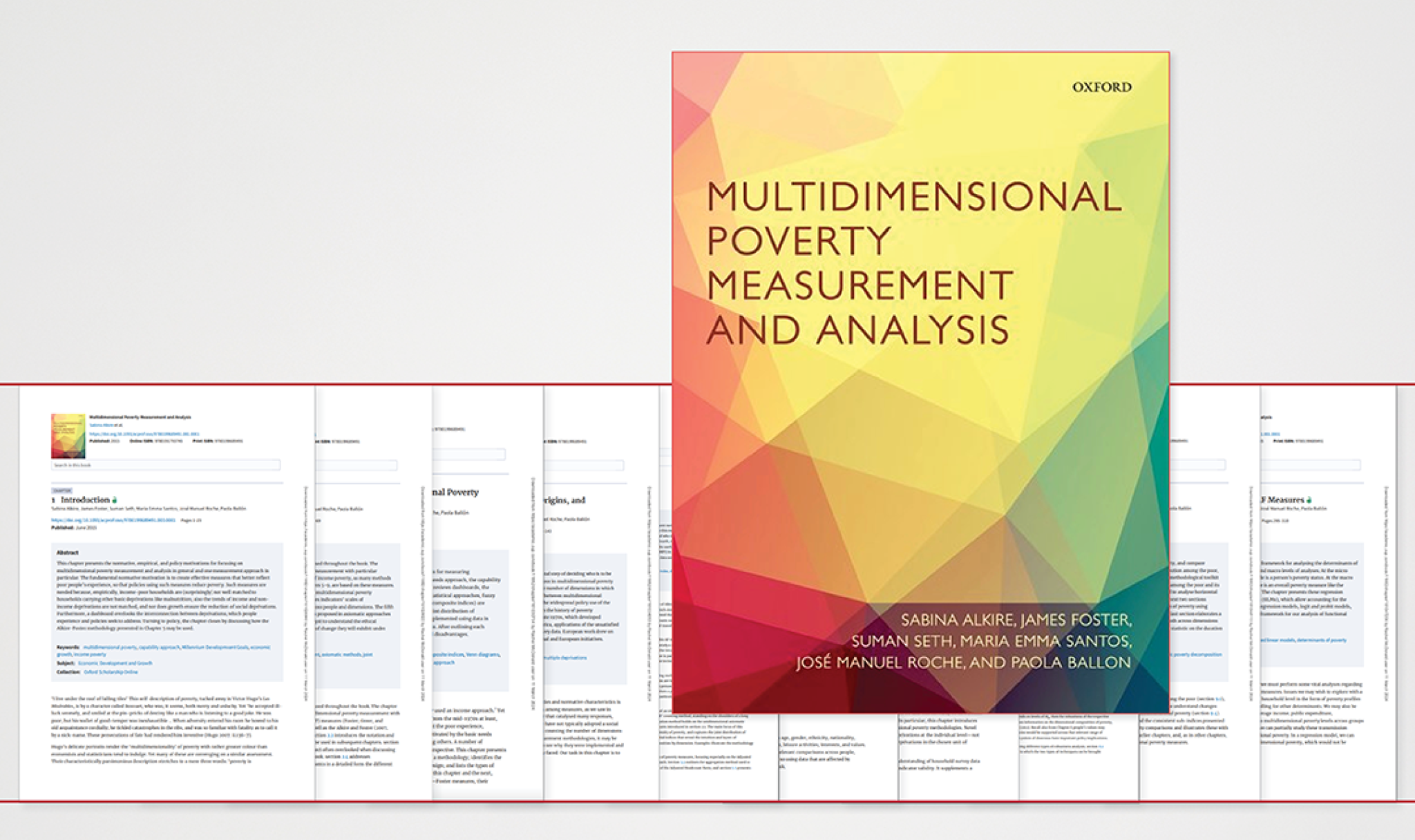OPHI research is interdisciplinary and intended ultimately for practical use. It can be broadly categorised into two main themes, although topics can cross both themes:
- The theoretical/empirical/axiomatic advancement of methodology: OPHI research develops and applies new methodologies for measuring multidimensional poverty, wellbeing and inequality.
- Policy relevant uses of multidimensional measures: OPHI research explores the relationships between multidimensional poverty and other variables, including monetary deprivations and how poverty and shocks interact. The shocks can be negative (such as conflict, climate changes, and health/economic crises) or positive (such as anti-poverty policies).
The global MPI is one of the most high-profile outputs of OPHI's research, an internationally comparable global index of acute multidimensional poverty covering over 100 countries in mainly developing regions. The dataset, which is updated annually, is used to research a wide range of questions about poverty. The global MPI is produced in partnership with the United Nations Development Programme Human Development Report Office (UNDP HDRO).
OPHI Research is published in OPHI Research in Progress papers, OPHI Working Papers, and a range of development, economics, and other interdisciplinary journals. We also regularly disseminate our work at international conferences, workshops and seminars. Papers are shared through the OPHI seminar series, usually held in the autumn and spring terms of the University of Oxford, which are public and jointly hosted with the Institute for International Economic Policy, George Washington University, and HDRO.



